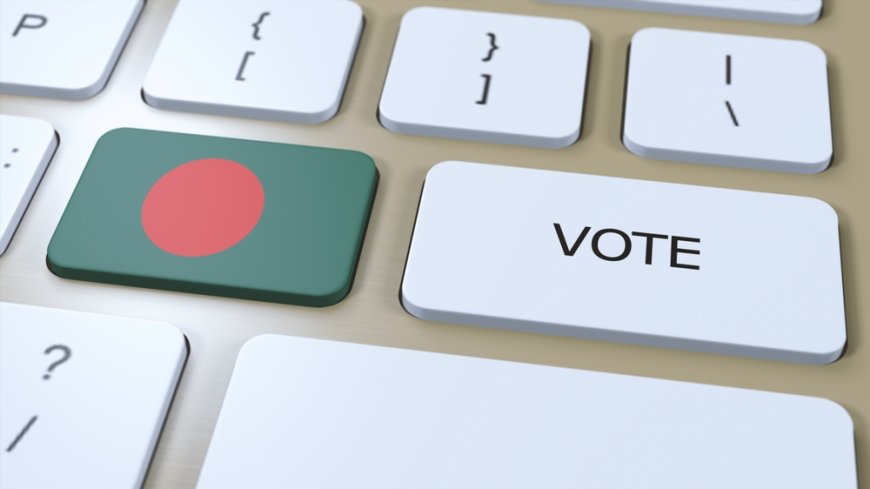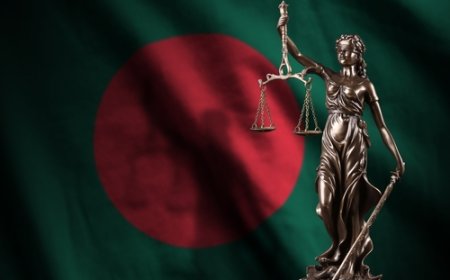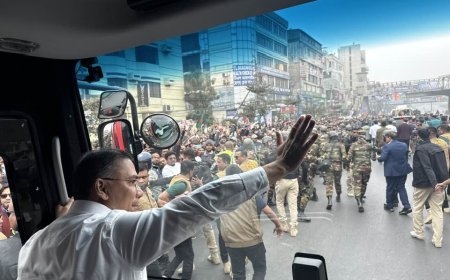The Mother of All Reforms
An Upper House based on proportional representation would be the single most valuable reform that all sides could agree to that could truly make a difference to the Bangladeshi body politic. The BNP should take that deal.

The Consensus Commission appears to have reached an in principle agreement on a hundred member Upper House of the parliament, and is slated to discuss the mechanism for forming the house and its powers next week. This may well be the most important of all constitutional reforms on the table.
Let’s recap how we got here.
An upper house of the parliament is a key feature of BNP’s 31 Points reform proposals. It is expected that the Upper House will consist of individuals of high repute from various segments of the society who may not have been able to contribute to governance through the traditional political routes.
The concept of the Upper House has received support from most political parties and is a key component of the proposals put forward by Professor Ali Riaz’s Constitution Reform Commission.
The 31 points did not specify any particular mechanism through which the political parties would choose the members of the Upper House. Two options have emerged.
First, the Upper House membership would be proportionate to votes received by the parties in the Lower House. This is the PR Upper House option, and is favoured by most political parties, the Riaz Commission, and the Nagorik Coalition.
The alternative mechanism, proposed by the BNP, is that the membership would be proportionate to the seats won in the Lower House. Direct election of Upper House members is not an option favoured by any party or stakeholder group.
In principle, the key responsibility of the Upper House is to hold the executive government accountable. In practice, the Upper House design will need to strike a balance between providing checks and balances against the executive branch of the government without obstructing governance. This means, the Upper House should not mirror the composition of the Lower House (as would be the case in BNP’s preferred option), and it should have very specific responsibilities.
A PR Upper House with specific responsibilities as proposed by the Nagorik Coalition would strike this balance. Under their proposal, the incumbent party might not always have the majority in the proportionately represented Upper House. This would allow the opposition parties to stop the incumbent from embarking on undemocratic excesses.
For example, the PR Upper House with at least 32 BNP members might have been able to stop the Hasina regime from ramming through the 15th Amendment. This would have been very unlikely under the BNP’s preferred method where the party would have had only 10 Upper House members.
However, under the Nagorik Coalition proposal, the Upper House will not be able to initiate or obstruct legislations other than those relating to constitutional amendment and declaration of war. This means, the opposition parties will not be able to obstruct the incumbent from governing the country.
The Nagorik Coalition also proposes a number of vetting and investigative powers for the Upper House. Crucially, the Upper House can be used to form an All Party Parliamentary Committee that can play a crucial role in forming the election-time non-partisan government.
Similarly, an All Party Parliamentary Committee comprising the members of the Upper House can vet and approve the executive nominations to the constitutional and oversight bodies such as the Election Commission, Anti-Corruption Commission, Human Rights Commission, and others. The Upper House can also play important oversight roles.
As the largest democratic party, BNP stands to benefit from a PRUH in both government and opposition. President Ziaur Rahman welcomed into the opposition benches veteran politicians such as Ataur Rahman Khan as well as (then) young guns like Suranjit Sengupta and Salahuddin Quader Chowdhury.
Similarly, a future BNP government would benefit from facing a group of capable parliamentarians in the Upper House. These opposition upper house parliamentarians, in time, could organically evolve into a capable democratic alternative to the BNP. That would be the way to strengthen our democracy in the long run.
This is why BNP should accept the concept of the proportionately represented upper house now, with the exact responsibility of the Upper House members, and other details such as what is the minimum threshold of votes for parties to be eligible for Upper House membership to be worked out after the election.
What's Your Reaction?














































































